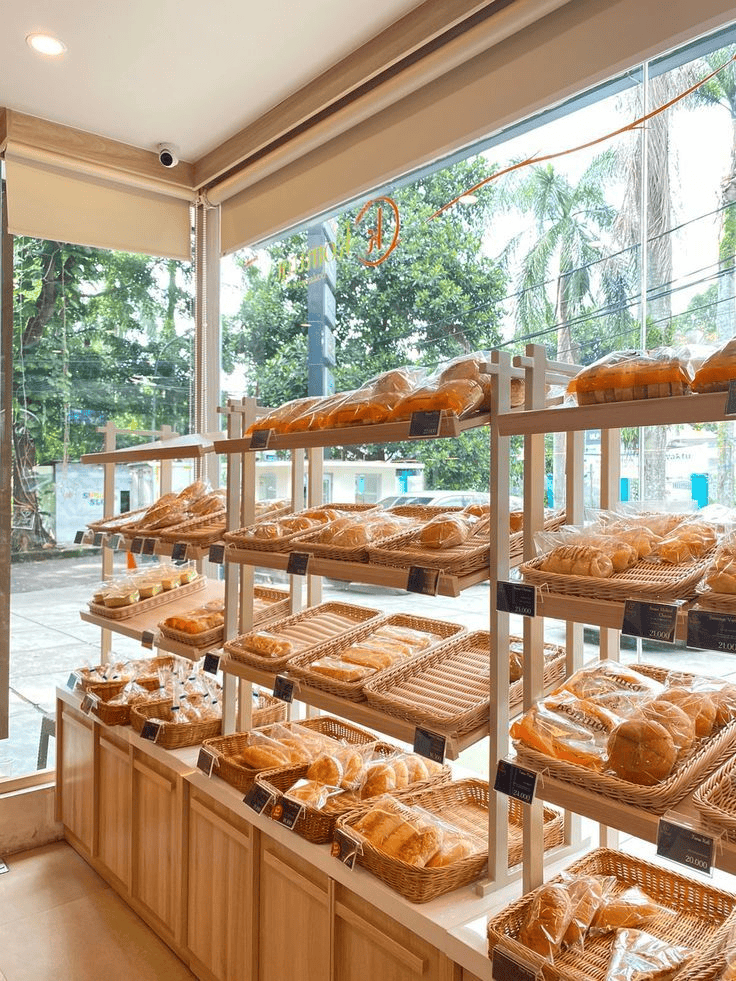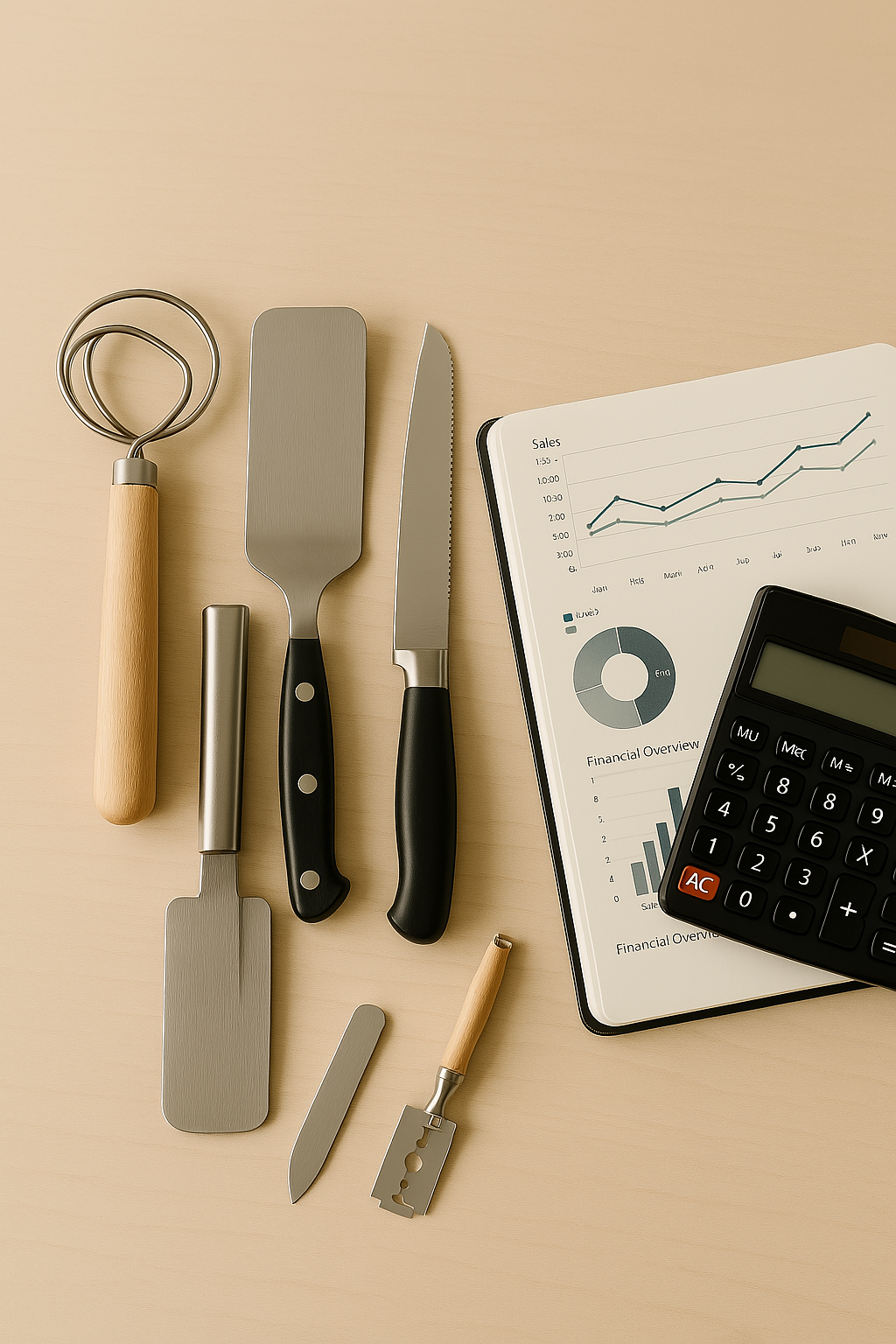How to Start a Bread Bakery Business in India?
Bread is a staple food for millions, making it one of the most popular bakery products in the country. The demand for fresh, ready-to-eat bread is rising fast, thanks to busy lifestyles and changing food habits. Thinking about starting a bread bakery business? Now is a great time. India’s bakery market was worth about USD 13.8 billion in 2024 and is expected to more than double to USD 31.5 billion by 2033.

Urban areas are seeing more bakery shops and online bakeries because people want more variety and convenience. The growth of food delivery apps and e-commerce also makes it easier for new bakeries to reach customers.
If you are passionate about baking and want to tap into a booming market, starting a bread bakery business can be a smart move. With the right plan and a focus on quality, you can build a successful bakery that serves your community and grows with the market.
Process to Start Your Bread Bakery: Step-by-Step Guide
Starting a bread bakery business is a big decision, but breaking it down into steps makes it easier. Here are detailed steps to help you at every stage:
Step 1: Define Your Business Model
First, decide how you want to run your bakery. You can choose a physical storefront, an online bakery, or a home-based setup. A physical shop lets customers walk in and buy fresh bread. An online bakery lets you take orders through a website or food delivery apps. Many new bakers start from home to save money and test the market. Choose the model that matches your budget, lifestyle, and goals.
Step 2: Craft Your Business Plan
A good bread bakery business plan is your roadmap. Start with market research. Find out what types of bread people like, who your main customers will be, and what other bakeries are doing in your area. Your plan should include:
- Business goals: What do you want to achieve in one, three, and five years?
- Target market: Are you serving families, offices, schools, or health-focused customers?
- Financial projections: Plan your expected expenses, income, and profits. For instance, starting a small bakery in India might require ₹50,000 to ₹5 lakhs, while a medium-sized one may need ₹10 to ₹25 lakhs.
- Marketing strategies: How will you let people know about your bakery? Will you use flyers, social media, or local ads?
Step 3: Secure Funding
You need money to buy equipment, ingredients, and pay for licenses. There are several ways to fund your bakery:
- Self-funding: Use your own savings.
- Bank loans: Many banks offer loans for small businesses. In India, bakery loans are available under schemes like Mudra and Stand-Up India.
a. Mudra Scheme : Under the Mudra scheme, bakery businesses usually fall under the ‘Shishu’ or ‘Kishor’ category.
- Shishu (loan up to ₹50,000) is ideal if you’re starting a small home-based or local bakery.
- Kishor (₹50,000 to ₹5 lakh) suits small to medium bakeries with plans for basic setup, equipment, and rent.These loans require minimal paperwork and are suitable for new entrepreneurs. b. Stand-Up India: This scheme is designed to support SC/ST and women entrepreneurs. It provides loans between ₹10 lakh and ₹1 crore for setting up new businesses, including bakeries.If you’re a woman or belong to an SC/ST category, this can be a good choice for starting medium-sized bakery.
- Investors: You can ask friends, family, or business investors to support your bakery.
- Crowdfunding: Collect small contributions from a large number of people through online platforms.
Step 4: Choose the Right Location
Location can make or break your bakery. Look for places with high foot traffic, like busy markets, near schools, or close to offices. If you want to save money, consider starting at home or using a shared kitchen. Rent is a major expense. In Indian cities, renting a 1,000-square-foot bakery space can cost around ₹60,000 to ₹70,000 each month. Make sure your space meets health and safety standards.
Step 5: Purchase Equipment and Set Up Your Bakery
You need the right tools to bake quality bread. Essential equipment includes:
- Ovens (for baking)
- Mixers (for dough)
- Refrigerators (for storing ingredients)
- Display cases (to show your bread)
- Baking trays and pans
- Packaging materials (for takeaway or delivery)
For a small bakery, equipment costs can start at ₹3 to ₹5 lakhs. You can save money by buying second-hand machines or starting with basic tools if you work from home.
Step 6: Obtain Necessary Licenses
Operating legally is important. In India, you need several licenses:
- FSSAI registration: FSSAI registration is a food safety license.
For home-based bakeries, you may still need a Basic FSSAI Registration and, in some cases, local municipal approval if you’re selling directly from your home kitchen. Always check with your local authority to stay compliant.
- GST registration: You must register for GST if your annual sales go over ₹20 lakhs (₹10 lakhs in special category states).
- Local health permits: Issued by your city or state health department.
- Shop and establishment license: A Shop and Establishment license is mandatory if you’re running a physical bakery outlet.
These licenses can cost between ₹10,000 and ₹50,000, depending on your location and bakery size.
Step 7: Hire and Train Staff
Good staff help your bakery run smoothly. For a small bakery, you may need two to four people. For a larger shop, you might need six to ten employees. Hire skilled bakers and friendly front-of-house staff. Train everyone on hygiene, baking standards, and customer service. This helps maintain quality and keeps customers happy.
Step 8: Market Your Bakery
Let people know about your bakery! Use these marketing ideas:
- Social media: Post pictures of your bread on platforms like Instagram and Facebook to attract customers.
- Local advertising: Distribute flyers or put up posters in your area.
- Promotions: Give special discounts or free samples to draw in new customers.
- Word-of-mouth: Encourage happy customers to tell their friends.
Online bakeries can also use food delivery apps to reach more people. Marketing is an ongoing process; keep your customers engaged with new products and updates.
Step 9: Monitor Profitability and Growth

Track your bakery’s performance from day one. Keep records of sales, expenses, and customer feedback. Use this data to:
- Adjust your menu or prices if needed.
- Improve your marketing strategies.
- Plan for expansion or new products.
Bakery businesses usually earn profit margins ranging from 20% and 40%. Home bakeries often have higher margins because of lower overhead costs.
Challenges & Solutions in Starting a Bread Bakery
Starting a bread bakery is rewarding, but it comes with real challenges. Knowing how to handle these issues makes a big difference for new bakery owners.
Challenge 1: Managing Initial Costs
One of the first challenges is dealing with the costs needed to get started. You need to buy equipment, find a place to work, and get the right licenses. These steps can feel overwhelming, especially if you are new to business.
Solution:
Begin with a simple setup. Focus on buying only the equipment you need, such as an oven and basic baking tools. You can start in a shared kitchen or even from home to save money. This approach helps you avoid spending too much at the beginning and lets you learn as you grow.
Challenge 2: Competing in a Saturated Market
The bakery market is busy, with many shops offering similar products. Standing out can be tough, especially in cities and towns where bakeries are common.
Solution:
Offer something different. You could make organic bread, gluten-free options, or unique flavors that others do not have. Excellent customer service also helps you build loyalty. Use social media and word-of-mouth to reach new customers and share what makes your bakery special.
Challenge 3: Maintaining Consistent Quality
As you grow, keeping your bread the same high quality every day can be difficult. Customers expect the same taste and freshness each time they buy.
Solution:
Standardize your recipes and baking steps. Always use good-quality ingredients, and train your team to follow the same process. Regularly check your products and ask for feedback to keep improving.
Challenge 4: Ensuring Regulatory Compliance
Bakeries must follow health and safety rules. Getting the right permits and keeping up with regulations is important for your business.
Solution:
Stay updated on food safety laws and keep all your permits current. Make sure your bakery meets health standards at all times. Good record-keeping and regular checks help you avoid problems and build trust with your customers.
Get Your Company Registered Today
Free consultations for MCA approvals to help you get started with your business.
End Note
Starting a bread bakery business in India is a smart move in today’s growing market. With demand for fresh and healthy bread rising, there’s a real opportunity for new bakeries. By following a step-by-step plan, choosing the right business model, focusing on quality, and understanding your customers, you can build a bakery that stands out.
Overcoming challenges like competition and regulatory requirements is possible with careful planning and a commitment to excellence. Stay updated with market trends, keep improving your products, and always prioritize customer satisfaction. With dedication and the right approach, your bakery can become a trusted name in your community.
Frequently Asked Questions (FAQs)
Is starting a bread bakery business profitable?
−Yes, starting a bread bakery can be profitable if you offer quality products and manage your costs well. Bread is a daily need for many people, so there is always demand. With good planning, customer service, and smart marketing, many bakery owners see steady growth and regular income.
Do I need special training to open a bakery?
+What licenses are required to start a bread bakery in India?
+Can I start a bakery from home?
+How do I choose the right location for my bakery?
+What equipment do I need to start a bread bakery?
+How can I attract customers to my bakery?
+What types of bread should I offer?
+How do I keep my bread fresh and high quality?
+What are the main challenges in running a bakery?
+How much time does it take to set up a bakery?
+Can I sell bread online?
+How do I price my bread products?
+Do I need to hire staff for my bakery?
+What makes a bread bakery successful?
+

